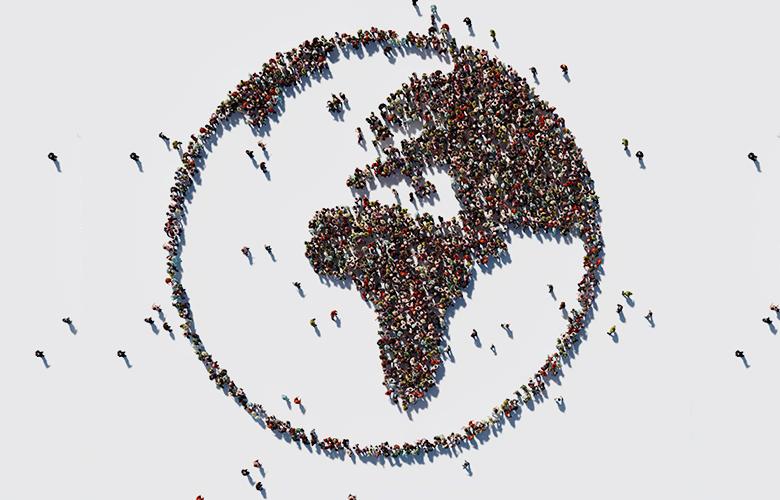
World Health Day 2021 comes on the heels of the one-year anniversary of COVID-19’s arrival in our lives. For me, as for many, this has been a time to reflect.
The pandemic has felt like a great leveling force. I feel more connected than usual to the world, knowing we’re experiencing the impact of COVID-19 in similar ways. All 7.6 billion of us are living lives with a shared thread, experiencing multiple, overlapping struggles: Fears about our health. Lost livelihoods. Lack of access to education for our children. Isolation. Stress. Grief.
As someone who lives in relative privilege, existing with so many uncertainties is a new experience. I’m unaccustomed to this inability to rely on systems I trust to keep me and my loved ones healthy and safe. The lack of freedom and stability, the risk of disease and death, took a heavy emotional toll. For the first time, I glimpsed what it must feel like to live in “survival mode.”
Yet I find myself speaking about these things with an underlying confidence that my life will return to the way it was. For me, this state of survival—and its effects—is transitory. For others, without a safety net, facing protracted crises, survival isn’t simply a difficult year. It’s a whole life.
I’ve spent my career working in places such as Haiti, Iraq, and the Democratic Republic of the Congo, where instability, conflict, and crisis have ruptured systems, squandered resources, and affected the well-being of individuals, families, and societies. Trust in government is broken. Safety is not guaranteed. Billions of our global neighbors live in these contexts, where health systems cannot provide a basic level of medical care, and health workers struggle to manage illness and disease without adequate supplies. Mothers and children are turned away from hospitals because there are no beds, or they cannot afford the cost of care. Our health systems’ current crisis is the norm in many places, where people are simply left to find their own way.
I’ve witnessed these conditions firsthand, but lately I’ve developed a deeper understanding of the powerlessness to change one’s circumstances. I’ve felt stress and anxiety from constant unease and vulnerability. Yet, these seem insignificant relative to the experiences of people in countries where I’ve worked.
In those places, communities band together just as we have. They offer emotional support in times of struggle. They share resources. They weave a social fabric that safeguards against the dangers and uncertainties of their world. They must, because resiliency is their greatest means of coping. And they have lessons to teach us about survival—that resources are not to be hoarded by the few, that we have a duty to safeguard those most at-risk among us.
Too many people around the world exist in a state of vulnerability that compromises their ability to thrive—physically, emotionally, economically, and socially. After this past year, I’m much more conscious of the ways in which crisis takes its toll on well-being, and who it affects most. Will we—the lucky few with access to vaccines and reopened societies—crawl out of the dark, terrible days of this year and think more about inequity, vulnerability, and our responsibility to one another? Will we have greater empathy for the marginalized and disenfranchised? Will we act on it?
| Alisha Keirstead is the director of EDC’s Global Health Team, which designs and implements programs in adolescent health, HIV care and support, child protection and violence prevention, and mental health and social-emotional well-being around the world. |

Add new comment